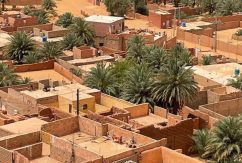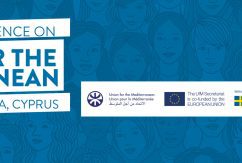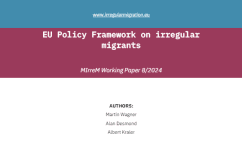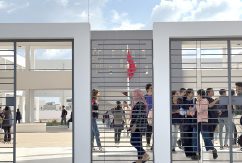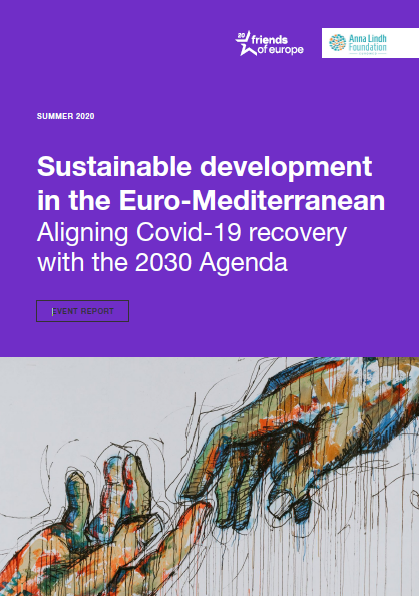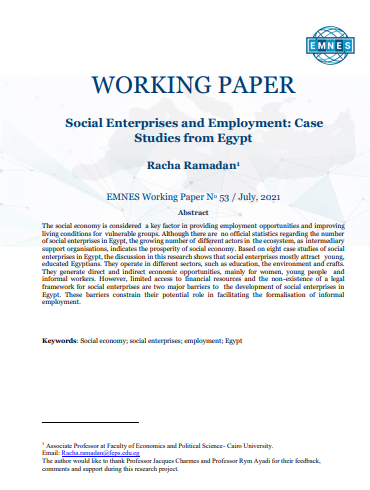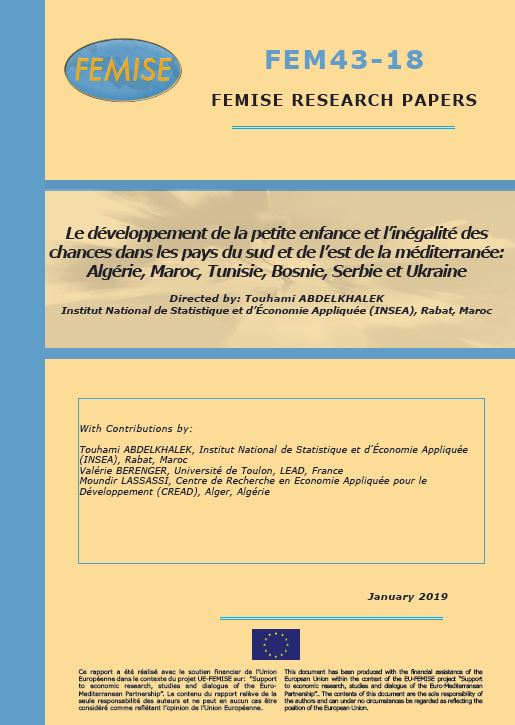FEMISE Research Paper FEM44-01 – Financial Inclusion and Stability in the MED Region: Evidence from Poverty and Inequality
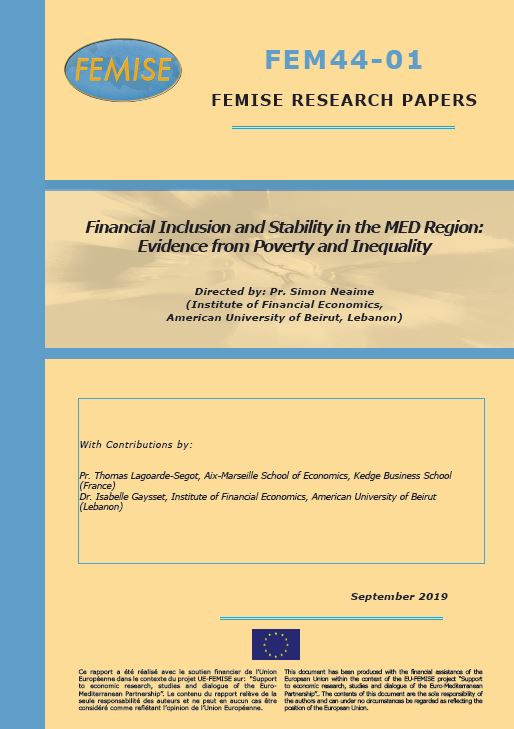

Despite a significant growth in profitability and efficiency, the Middle East (MED) well developed banking system seems to be unable to reach vast segments of the population, especially the underprivileged ones. To this end, the onus of policymakers in the region is to create effective opportunities for financial inclusion, and subsequently poverty and income inequality reduction. Whether they have succeeded in their endeavor is an empirical question we seek to address in this research project.
Using Panel data, GMM and GLS econometric models, and a sample of six MED countries (Al GMM and GLS econometric models and a sample of six MED countries (Algeria, Egypt, Jordan, Lebanon, Morocco and Tunisia) over the period 2002-2018, this paper assesses empirically the impact of financial inclusion on income inequality, poverty, and financial stability in the MED region.
While the empirical literature on the region is relatively scarce, this paper adds to that literature by bridging a significant existing gap, especially in the aftermath of the recent financial and debt crises and the recent political, social, and military turmoil that have been unfolding in several MED countries.


